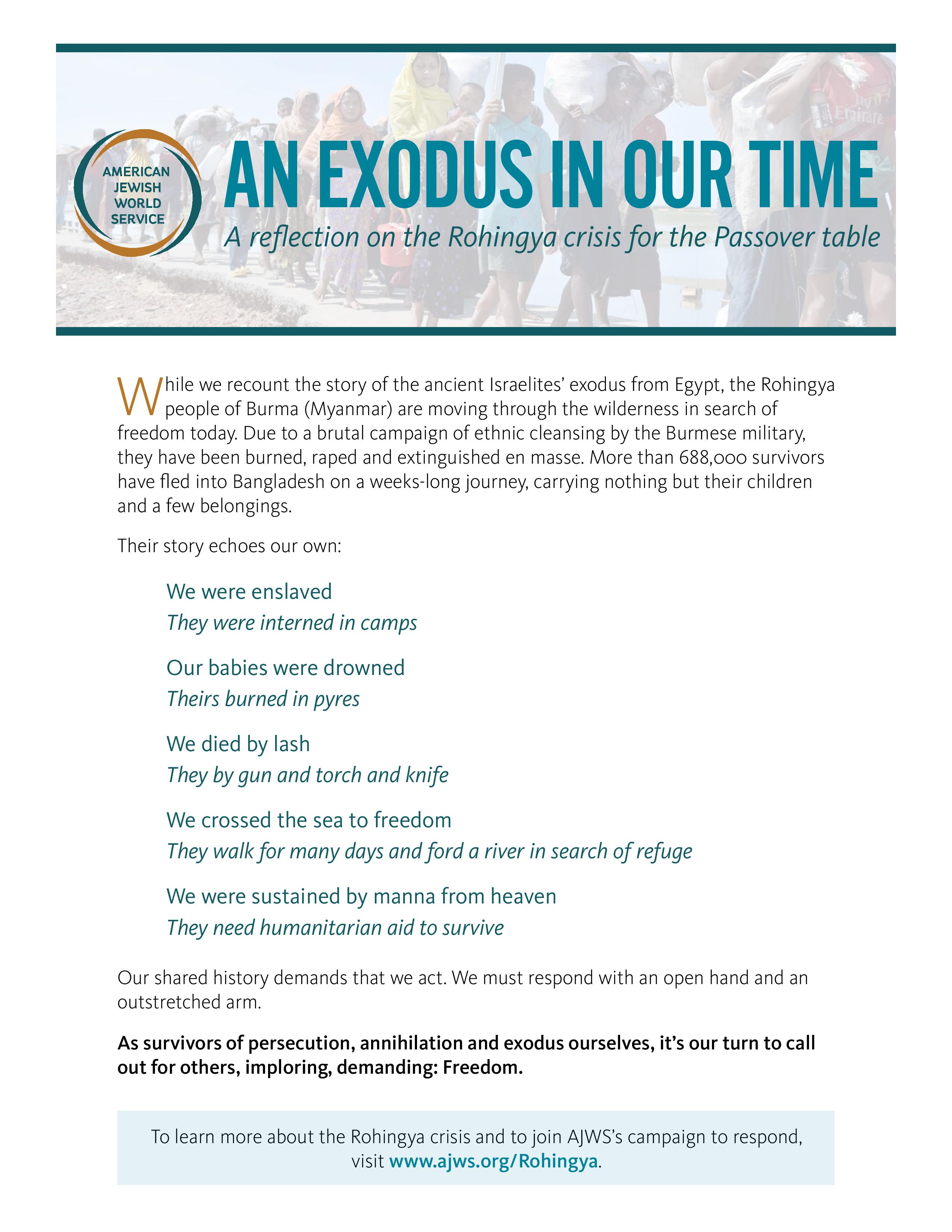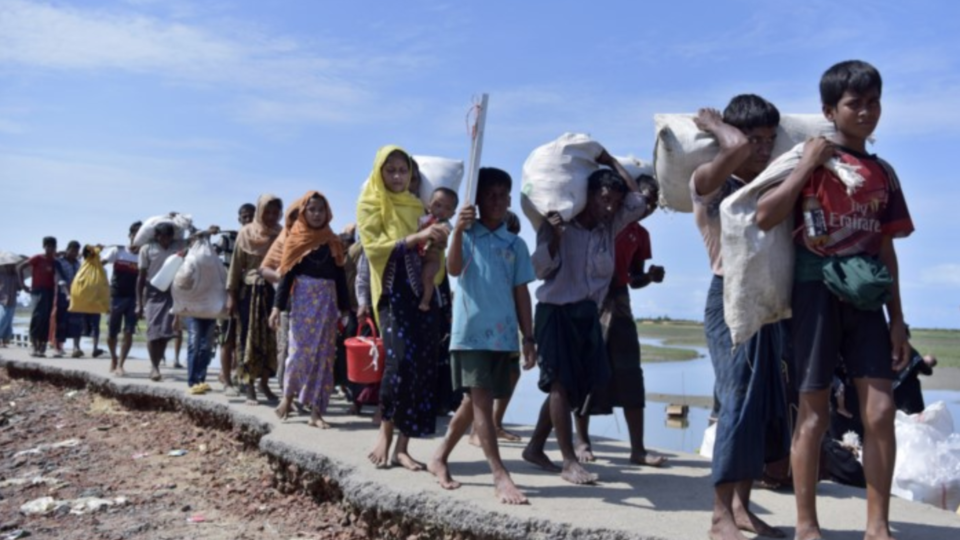“I was waiting for Jews who would never come,” popular Los Angeles rabbi David Wolpe wrote in a New York Times opinion piece yesterday, recounting a somber visit to Yangon’s Musmeah Yeshuah Synagogue.
The synagogue, Wolpe laments, is one of thousands in the world that are the only remnants of once-flourishing Jewish communities that have eroded at the hands of “persecution, economic deprivation, or cultural isolation.”
“To travel almost anywhere in the world as a Jew is a tour of loss,” he sighs.
The article, published just in time for the first night of Passover, is an accurate reflection of how lots of Jewish people commemorate the holiday – we eat hard breads, bitter herbs, and saltwater to remember that we suffered, and then we tell stories about how we’re still suffering now.
However, there are some Passover-observers who see that Myanmar’s relevance to modern systems of oppression is not limited to Jewish suffering. Their “tour of loss” includes bulldozed villages, burnt mosques, and bombed churches as well as abandoned synagogues.
These Jews include the folks at the American Jewish World Service (AJWS), who have produced a handout titled An exodus in our time: A reflection on the Rohingya crisis for the Passover table. The handout asks readers to spend the night telling stories not only of Jewish suffering and liberation, but also of the ability Jewish communities possess to try to mitigate the suffering and facilitate the liberation of people who have suffered like the Israelites of the Old Testament did.

The handout is part of AJWS’s larger Global Justice Haggadah – a book of stories that relate Passover traditions to modern iterations of slavery and injustice. The cover of that book also happens to depict a group of women in Myanmar protesting against the construction of a controversial dam.
Of course, sitting around and talking about the oppression of people around the world doesn’t necessarily help anyone, but combatting the othering and tribalism that can lead to crimes against humanity is a good place for people in positions of relative privilege to start.




